All parents have a moment when their growing child begins to do the opposite: ignore requests, scatter newly assembled toys, scream or even try to hit.
This does not mean at all that you are bad parents. This indicates that the child has crisis age. Today we will talk in more detail about what a crisis of 3 years is for a child, how parents should behave, how to properly survive this period of time.
How does the crisis manifest itself? Symptoms
If a three-year-old child is asked: “What color is your toy?”, And knowing the correct answer perfectly well, he says that it is green (although in fact it is red), and then he also tries to make a tantrum about this, proving his case, - this is the first bell of the crisis age. Parents are usually familiar with this term, but still associate it with the complexities of adolescent behavior. In fact, babies also have a crisis age, they just behave on a slightly different scale.
Psychologists call the crisis of 3 years sometimes stubbornness. The main symptom that indicates that it has begun is stubbornness in all its manifestations: negativism, protest, etc.
Negativism is when a child always tries to act contrary to an adult, despite his desires. For example, it's time daytime sleep. Mom asks her son to go to bed, but he refuses to do this, despite the fact that he himself is already practically falling asleep during the games.
Or another good example: a grandmother offers her granddaughter to have lunch, she ran a lot, jumped up and really wants to eat, but refuses to sit down at the table to do it contrary to her grandmother's request. Stubbornness in its purest form is expressed by the fact that if the child has already answered the question, it will be very difficult to convince him to answer otherwise.
For example, parents and their son walk in the evening before going to bed on the street. Mom says it's time to go home, the child refuses. Further, mom and dad are trying to convince their son that it is already dark outside, it is getting colder, it has become scary. The boy agrees with their arguments, but refuses to go home, because he does not want to change his first answer "no".
How long does a crisis last 3 years in a child
If you ask how long the crisis of 3 years lasts for a child, then no specialist will give you an exact answer. Since the duration crisis period depends on each individual case, and also on the correct behavior of the parents.
If you can behave with dignity with a capricious three-year-old, then the crisis will pass much faster. And so you need to be prepared for it in advance. But still, there are approximate age limits: a crisis can occur between two and a half and up to three and a half years.
In more active children with good developed speech the crisis age is earlier and its first signs appear at about 2 years and 6 months - 2 years 8 months.
Psychology
A three-year-old kid, like a teenager, is trying to conquer the world and reshape it for himself, but the arsenal of his influence on his parents is not yet so great. A child at the age of 3 learns speech every day, so he is characterized by "speech harm" - screams, tantrums, curse words heard on the street from passers-by, etc.
Moreover, 3 years is the age when the child already understands how important he is for his parents, so he can test them with his requests and demands. For example, if a child wants to play ball during dinner, he will do everything to achieve his goal. He will moan, cry, throw dishes, etc.
How should parents behave with a child during a crisis period?
In fact, they just need to stock up on endurance and calmness in order to, in spite of everything, show their exactingness. The child must be aware that all the rules must be followed regardless of his desires.
They wash their hands before eating, put on a hat in bad weather, put toys in a basket, put on shoes on the street, etc.
But an adult must clearly set his requirements to the child and be consistent in their implementation. If today you forced your child to wash their hands, then you must do it tomorrow and the day after tomorrow. If you have not given permission to play with the kitchen service today, then you must always do so.
And not so that today you can play, but tomorrow you can’t, because from such inconsistent behavior of adults the child is lost. He absolutely does not understand the parent, why yesterday it was possible to do this, and today it suddenly became impossible. And, of course, he will try to achieve his goal, by all means.
- Kids also like it when adults start fooling around with them. 
In this case, they do not feel that someone is in charge and someone is subordinate, but on the contrary, they feel equal in rights with mom and dad, which is very important for the development of a capricious three-year-old.
For example, it can be a game with words, when you assign magnifying suffixes to all objects and pronounce the whole name in a louder voice: “Now we will put on a green jacket” or “And we will eat delicious, delicious soup”.
Why is such an approach useful?
More recently, the baby realized that thanks to speech, he can go against his parents. And now adults are helping him make a new discovery: it turns out that this can also be funny. A three year old has a sense of humor.
- Moreover, the parents of a 3-year-old baby can help out the child's favorite cartoon characters.. 4 Using their example, you can explain what to do in a given situation (if the hero of the cartoon is positive).
For example: “What would Kuzya from Luntik do in such a situation?” Or introduce your favorite characters into the game. To begin with, buy or make their own figurines, and then use them to beat life situations. The child will be carried away by such a game, and on a subconscious level, he will develop the right attitudes for himself over time.
The crisis of three years in children psychology
The crisis of three years: psychology explains this period not only as one of the most difficult, but also as one of the most important, because at this time the child for the first time goes through the process of becoming himself as a person, he is aware of his "I".
Well, and most importantly, what parents should remember: no matter how difficult the crisis age of the child is, he certainly has his own positive sides.
The harmfulness of a three-year-old baby is a kind of catalyst for his speech development. During the games and setting the rules of behavior, your child learns more and more new names for abstract concepts, objects, i.e. enriches your vocabulary.
A bright crisis of childhood occurs when the child reaches three years. Parents are taken by surprise by the fact that yesterday the baby was gentle and obedient, but so quickly turned into a little whim, with whom it is simply impossible to agree. The little tyrant begins to become stubborn and completely does not perceive those things that were not problematic yesterday. “Crisis of three years” - this is how psychologists call this behavior of a baby. To understand what is happening with a baby at the age of three, you must first understand the symptoms.
Three year old crisis symptoms
The crisis of the age of three can last several months or more, proceed in different children with different intensity. During this period, the crumbs change relationships with others, and new social skills appear. At the age of three, the human psyche begins to form, therefore, when communicating with the offspring, it is necessary to take it into account age features.
Psychologists draw parents' attention to seven symptoms of a crisis:
- Negativism.
- Stubbornness.
- Despotism.
- Depreciation.
- Obstinacy.
- Riot.
- Independence.
Let us analyze the symptoms of the crisis separately, trying to systematize their manifestations and give an accurate picture of what is happening.
- If we talk about children's negativism, then you must first learn to distinguish negative reactions from simple disobedience.
If the baby simply does not do what he does not want to do, then this cannot be called negativism. Negativism manifests itself in the unwillingness to do something just because it was suggested by adults. It is a response to the offer itself, not to the action. Negativism manifests itself in relation to one person, and a three-year-old baby will treat other adults with obedience.
- Second symptom three year crisis- stubbornness, which should also be learned to distinguish from perseverance.
If a child persistently seeks the fulfillment of his desire, then this cannot be called stubbornness. The motive for the real stubbornness of the crumbs can be perseverance, and the object can be anything from food to action. The child is ready to perform the action, not because he really wants to, but because he demanded it. For example, they call the boy to the table, and small dick family refuses, although he really wants to eat. Adults argue and convince, but the stubborn one still does not fit, since he had already refused earlier.
- Despotism is the desire of a child to subjugate adults to his will.
This symptom manifests itself in a family where the parents have only one Small child, and all adults pamper him, everyone allows him. For example, a little daughter demands that her mother stay in the room and sit next to her. Or a three-year-old son will eat only what he wants, and healthy foods eat refuses. By this, children try to return the state of infancy, when their parents provided them with everything on demand. In a family with several children, despotism is expressed as jealousy.
- Devaluation of events and actions, the importance of things is manifested in antics, name-calling, breaking toys: that is, the baby shows that he no longer needs what was dear to him before.
A three-year-old baby is in constant conflict with others: this behavior is similar to a protest. The baby's lexicon is expanding every day, replenishing with bad words and terms that mean denial. As a rule, they refer to things that do not bring trouble at all.
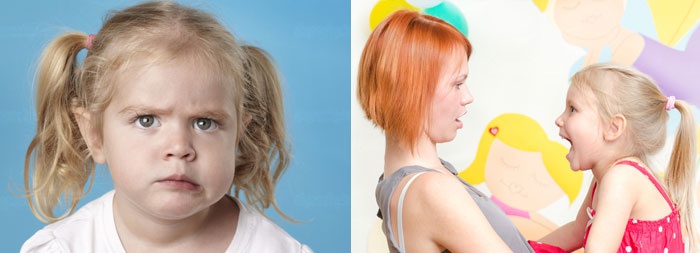
- Obstinacy is also one of the unpleasant symptoms of a crisis in a small three-year-old offspring.
Stubbornness is impersonal. If negativism is directed specifically against this or that adult, then obstinacy is directed at all actions that are offered to the baby.
- Rebellion is manifested in the desire to attract more attention.
A three-year-old baby tries to show his parents that his desires have the same weight as their own, so he goes into conflict for any reason. Parents sometimes think that the baby is just mocking them, constantly commanding and demanding that their own, even the most ridiculous, instructions be carried out.
- The crisis of three years vividly expresses the desire of the little offspring for independence.
The child shows curiosity, learns new things, tries to understand incomprehensible things, which subsequently favorably affects the formation of his personality. However, the negative aspects of the symptom are that the baby wants to take on adult affairs, which at the age of three do not work out at all, and the result is hysteria.
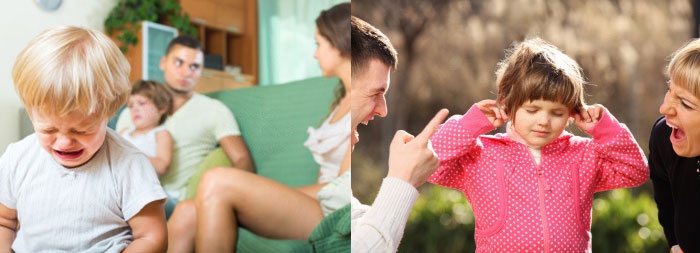
How it manifests itself and how long the crisis lasts 3 years
Why is there a crisis in three years old? The development of a small person continues uninterruptedly, and from infancy, the baby smoothly passes into adolescence. He already knows how to do many things on his own, but is not yet able to completely do without his parents. It is not easy to get used to this, therefore, at the age of three, a crisis is inevitable. The kid simply does not know how else to overcome those new sensations that life presents. And here's how to get out painlessly new level development, the offspring must be shown by the parents.
The crisis period of three years is marked by active internal work, when significant shifts in mental development baby. The main innovation in this early period the feeling of a sense of one's own "I" is considered. A little three-year-old man forms an attitude towards himself, and if a baby a year ago, seeing his own reflection, said: “This is Sasha”, then when he reaches three years old, approaching the mirror, he will definitely say: “This is me.”

A three-year-old baby is just beginning to realize that he has already grown out of infancy and begins to influence the circumstances of his life and the people who surround him. The youngest member of the family already feels on a par with his parents, and therefore requires the same attitude as an adult. Tantrums happened even before the baby reached the three-year crisis, they were only signs of physiological problems:
- overwork;
- diseases;
- malnutrition or lack of sleep.
During the crisis of three years, hysteria is manipulation. The kid on a subconscious level tries to get what he wants from his parents, especially children love the audience. No wonder adults have noticed that on the street, in a supermarket or on a playground, a child falls into hysterics much more often than at home. How wisely the parents behave, the teenage crisis will be easier for the little offspring.
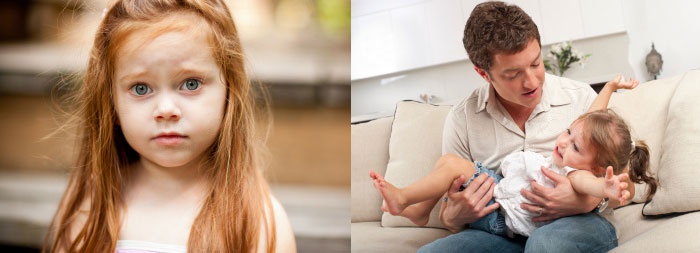
It is impossible to guess how long the crisis will last for the baby. For some children, the crisis age goes unnoticed, while others linger in it for several years. A growing man will often face age thresholds, but the crisis of three years is considered an important milestone on the way. personal growth. Wise parents simply wait out the crisis, because first of all, the burden falls on the psyche of their child.
What to do and how to survive it
Adults should prepare their offspring for the crisis of three years even before the baby celebrates its third birthday.
- The reaction to the whims of the younger family member should be calm and balanced.
You need to understand that a child during a crisis tests the nerves of his parents for strength. The baby will constantly put pressure on weak spots until he finds a slack.
- Moms and dads need to remember that the crisis of three years is not a manifestation of negative heredity or harmfulness of character, this is the norm ..
The formation of the personality of the future adult should not be clogged with prohibitions. It is also undesirable to go to the other extreme, because permissiveness will develop character traits in a little tyrant, with which over the years it will not be easy to integrate into society.
![]()
- Do not do for the baby those things that he wants to do himself.
Let the child try everything that is not life-threatening with his own hands, and if a couple of plates break in the process of learning the world, it does not matter. Parental wisdom also lies in offering a choice to a small person already at the age of three. For example, offer the baby to go outside in a black or blue jacket, knowing that the child may want to walk without it at all.

- Adults need to stop forcing three-year-old offspring to do something: it is advisable to just ask - and the baby will immediately appreciate it.
A three-year-old baby still has a slow rhythm of life and a type of psyche, so he needs to be given more time to react, and to bring any process into action. Wise tricks of parents will help prevent tantrums and keep the nerves of all family members: both small and large. It is better to seek advice and recommendations from a child psychologist at the age of three than to make a lot of mistakes in the educational process. Parents need to admit: their baby is becoming an adult, so his independence should be respected.
How to deal with whims
Psychologists believe: there is no greater power than the attention of parents. With the help of attention, all the problems that arise in a crumb of three years during a crisis are solved. The behavior of children is directed at those people who are constantly nearby, so the whims are explained only by attracting attention to themselves. It’s not that three-year-old children meaningfully want to drive their caregivers crazy, it’s just that, in their opinion, if they don’t attract attention with bad behavior, then relatives can completely forget about the existence of a little person.

Before you react violently to rebelliousness, you should find out the real reason for the bad behavior of a small child. Three-year-old children already have a subconscious need to avoid the humiliation that is felt during parental orders and moralizing. Perhaps this is the cause of the crisis? To punish after each tantrum is to develop cowardice and spinelessness in a child. Do you have a desire to raise such a person? It is much wiser to silently wait out the storm, and then try to get through to the offspring with the help of simple logic.
Three-year-olds already depend on how any information is presented to them and how logical the arguments look. To prevent tantrums during a crisis, it is important to be able to negotiate even at the initial stage of any action. For example, even before going to the store, you should agree with the crumbs about the impossibility of buying a toy. Do not demand and criticize, but discuss and explain why this action will not take place. You also need to be sure to ask how to replace the desired toy and offer your own entertainment options in return.
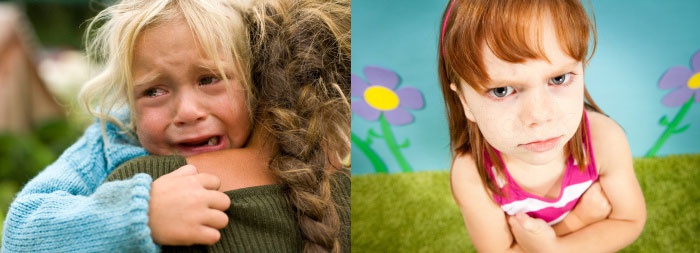
So, to make it easier to cope with the whims you need:
- stay calm;
- remember that hysteria can be the cause of inattention;
- invite the child to choose a strategy for solving the problem;
- restrain and not show irritation;
- find out the cause of whims;
- do not appeal to the mind of the baby in the midst of a scandal.
How to respond to parents
Parents are especially worried about affective outbursts that occur in three-year-old children with great intensity. During a crisis, you should not pay too much attention to them: the right decision is to ignore the tantrum altogether, and then, seeing that the methods do not work, the little manipulator will look for more effective tactics to involve adults in his game. But sometimes ignoring doesn't work either.
There are little personalities who are able to be in a state of passion for a long period of time, but the mother's heart is not able to endure this for a long time. An effective way to bring your child out of hysteria will be pity: hug, put on your knees, pat on the head - this always works flawlessly. But the mother should know that in this way her winner will influence in the future, demanding additional portions of attention.
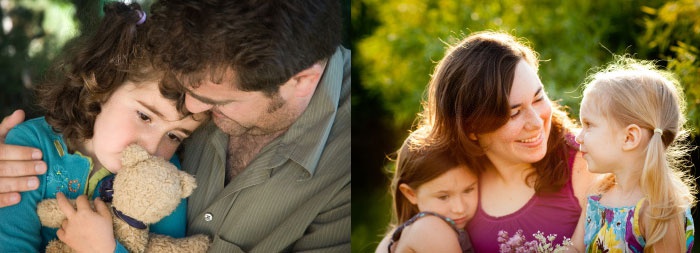
The crisis age of three years is the formation of adequate self-esteem in a small person. It is laid by trial and error, and adults should give the opportunity to make these mistakes in order to avoid many problems in the future. There is only one advice to parents: give the maximum possible freedom to the offspring. Independent from the age of three small man must go its own way. Educators who limit the independence of children disrupt their development, forming a heightened sense of insecurity.

But this does not mean that it is necessary to condone the baby in everything during the crisis. The golden mean in education is the definition of boundaries that are vetoed. For example:
- never play on the road,
- you can not walk in cold weather without a hat,
- you can’t skip the sleepy hour during the day, etc.
Parents are simply obliged to give their three-year-old little one the right to choose at least two options. Many valuable tips are described in the author's method of world famous psychologists D.B. Elkonin and V.V. Davydov.
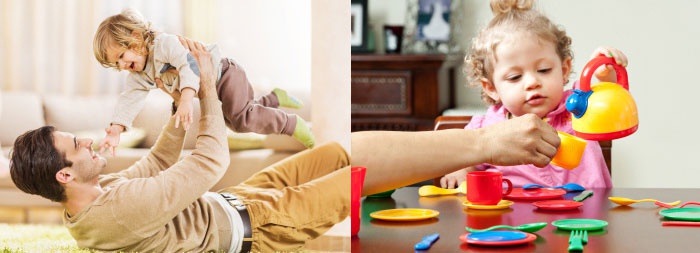
Child psychology
The psychology of three-year-old children is fundamentally different from that of an infant. Adults do not know how to respond to all the changes that occur in the behavior of the child. Such unpreparedness leads to disastrous results: conflicts in the family, in kindergarten, and subsequently in adult life growing person.

In addition to the development of independence, three-year-old children begin to be afraid of various things that they did not pay any attention to yesterday:
- height;
- large space;
- darkness;
- new environment;
- new people.
Inexplicable fear is expressed in the refusal to sleep alone, screaming in a dream or profuse tears in the middle of the night. It is important for moms and dads not to ignore this period and to convince the offspring that he is under reliable protection. This approach will help build a bridge of trust. little man, which will have a positive effect on subsequent attempts by adults in a crisis to negotiate with him.

A three-year-old child reacts sharply to the psychological situation in the family - scandals, swearing, raised voices. The reaction to such an atmosphere can be unpredictable, so it is very important for parents to maintain harmony in relations with each other when a small family member enters a crisis age. If three-year-old children see quarrels in the family, this will lead to a pronounced sense of their own inferiority, and subsequently to the use of the same style of behavior with the opposite sex already in adulthood.
Thank you. Your message has been sent
Did you find an error in the text?
Select it, click Ctrl+Enter and we'll fix it!
Yesterday the child was obedient, but today he is capricious and irritable. Doctors call this not the most pleasant period for parents a crisis three years. It is at this age that the baby is already aware of himself as an independent person and begins to test the patience of his parents, finding out for himself the limits of permissibility. The most frequent phrase of the child becomes “I don’t want to!”.
Here, parents often begin to behave incorrectly, scold and punish the child for any reason. Doing this is not worth it. Of course, sometimes you need to punish, but only if the baby has done something unacceptable. Try to be patient and explain to him what is possible and what is not and why. If you constantly scold and punish, then as a result the child will become even more naughty and stubborn.
How does the crisis manifest itself? (Video)
The crisis of three years is usually manifested by the disobedience of the child: he allows himself various dirty tricks, does not obey his elders, does not fulfill requests and throws tantrums for any reason and without it. This behavior is typical of both girls and boys.
When a crisis approaches, parents should start preparing in advance. Prepare yourself for the fact that the child will be stubborn and self-willed. You must understand that this is absolutely normal, since your offspring does not have to be perfect, it grows and develops and this is the next stage of growing up.
At a crisis age, the baby wants to be independent and understands that sometimes he does not want to do what is asked. He wants to decide for himself and do things his own way. For him, this is a new experience.
Often during this period, new lines of behavior and the so-called signs of a three-year crisis appear.:
- Negativism: The child contradicts the parents and acts in his own way. He may really want to go for a walk, but will refuse the offer just because it comes from an adult. Thus, the child is trying to protect his "I", and you should not consider this as pampering.
- Stubbornness: The child will stand his ground to the last. Even if he no longer wants what he demanded. Nothing and no one can convince the baby, even if you persuade him and offer something more interesting in return. So the child wants to understand that his opinion is considered.
- Devaluation: The child begins to feel differently about everything that he liked so far: stops playing with his favorite toys, treats previously loved adults well, and begins to consider his parents evil. He is no longer interested in games and activities, so beloved before. Often the child begins to swear and call names.
- The desire for independence: The child tries not to resort to someone else's help, does everything himself. Of course, it's good that he strives for this, but sometimes children take on what they cannot do due to their age. Here it is more likely to call such behavior self-willedness.
- Despotism: the child's attempts to command everything, including adults. He begins to indicate who should do what, what he will wear for a walk and demands the submission of others.
Are there any positives?
It is not necessary to perceive crisis as continuous difficulty. There are positive aspects to this as well. It is only necessary to see them and help the child in difficult moments for him. The main plus is that the baby learns to be independent, to protect himself and his rights. He tries to fight back against the outside world.
In no case should you try to break the child, to impose your will on him. This can forever kill in him the desire to achieve something and make him weak and weak-willed.
If parents with early years suppress the child, demand that he always yield and obey, then the baby does not survive this crisis. As a result, in the future, he will not be able to withstand all the difficulties. outside world and will be just defenseless. Later, parents will have to teach him to stand up for himself and express his desires and opinions, so as not to suffer from other people's pressure, command and arrogance.
If the child constantly obeys everything, then such behavior will be transferred to the kindergarten and to. He will always yield in everything and fulfill someone else's will. This humility will accompany him into adulthood. The child must learn to insist on his own, and not just give in, otherwise it will be very difficult for him to achieve something.
There is another reason why the crisis of three years may not come. This reason is the baby's mother herself, who gives him all her attention, tries to constantly educate him. So the child begins to empathize with the mother early. He will always try to do everything right, just so as not to offend her. The kid will fulfill all the requests and instructions of adults so that parents can see how obedient he is and not get upset.
It is very important for parents to learn how to direct the child's energy "in a peaceful direction", give him feasible tasks and, of course, often praise him for his success.
What to do if the crisis dragged on and the child's disobedience became permanent? There is only one way out - to recognize the child's own "I" and learn to live with him in peace and harmony. It is important to teach your stubborn baby to compromise, to be able to negotiate.
Hysterics! What to do?
Very often, three-year-olds, insisting on their own, begin to throw tantrums. How should parents act if the child constantly rolls scenes and generally behaves defiantly? The main thing is to wean him from thinking that shouting can achieve the desired result. You can’t let a child do whatever he wants and indulge him, just to stop crying. Having remembered and learned your reaction, he will resort to the method of tears and screams more and more often.
But trying to change the behavior of the crumbs is also not worth it. It won't lead to anything good in the end. If the child cries and demands one thing, then try to switch his attention to something else, start interesting game or read his favorite book. True, if the baby is already hysterical, this will not help - then you have to wait until he calms down. Just tell the child that you will only talk to him after the squeals stop and stop paying attention to him. The main thing for a parent is to remain calm, although this will be very difficult.
Very often, recognizing the “adulthood” of the child helps to cope with tantrums. If he knows that his parents consider him equal, the need to prove something with the help of a cry will disappear by itself.
When the child calms down, explain to him that you can’t achieve everything by shouting, that you love him, but you can’t do this to you, which is insulting and unpleasant for you. Often children throw tantrums on the street or in stores - for example, about the fact that they didn’t buy a toy or that they wanted so much. Take him to where fewer people, and have a conversation. Offer him a choice of several options for spending time together.
How should parents behave?
Parents, first of all, need to be patient. Of course, it is not always possible to keep a stone face when your nerves are at the limit, but it is simply necessary to try. To make it easier to endure this difficult period, you can heed the advice of child psychologists:
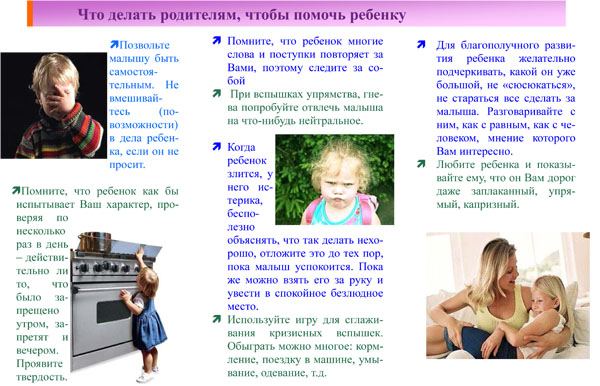
- You should not take care of the child too much, take care of him excessively, and also communicate with him in an authoritarian mode.
- It is necessary to adhere to one tactic in education. That is, parents can punish, and praise, and give gifts, but only together, and not in such a way that mom punished and dad regretted.
- Support the independence and cognitive interest of the child, unless, of course, it goes beyond the permissible.
- Try to communicate with the child while playing, do not point him or command him.
- Always explain to your child calmly and in a language he understands how to behave and how not to behave. And don't forget to state why. Education should take place on a positive wave, and not in punishments and prohibitions.
- Always offer the baby to find a compromise in. It is very important to leave him the right to choose.
- Teach your child to communicate with peers and adults. He must understand that it is impossible to swear, call names and fight with anyone.
The child needs help too (Video)
During such a period, it is difficult not only for parents, but also for the child. He simply does not understand what is happening to him, cannot control himself and really needs your support. Praise and encourage him often good deeds and behavior. Tell other family members what a great kid today, he went to bed, ate all the porridge - then the child will form a positive image of himself.
It is important to respond correctly to whims and tantrums. Remain calm and try to understand the baby. This is a difficult and important period in the life of a child, he tests himself, strengthens his willpower and the importance of himself in this. big world. You just need to be patient and get through this time period.
Often the crisis of three years takes parents by surprise. The child changes before our eyes, tries to do everything in his own way, does not fulfill simple requests, is ready to throw a tantrum at the slightest provocation, more and more often you can hear from the child: “I myself!”.
For a parent who is already used to "playing by certain rules", has developed a certain pattern of behavior and already has his own arsenal of little tricks to successfully cope with the baby, it can be difficult to understand how to behave with a changed child.
Causes of Behavioral Changes
Psychology can provide an answer to the question of why a crisis occurs. He usually makes himself known in 2.5-3 years, although an earlier or later manifestation is also possible. The main reason is the formation of the personality of the child. It is at this age that children come to realize that they are separate beings. They want to feel independent, but at the same time they still cannot do without adults. They need recognition of their independence and at the same time support and love. The body of a child at the age of three is sufficiently developed so that he can do a lot on his own. For example, explore the world around. Attempts by elders to help or forbid cause protest.
In addition, parents should analyze their behavior. Perhaps they did not attach importance to the fact that the baby has grown up, which means that it is necessary to change the way it is treated. You can not communicate with a child of 3 years in the same way as with a one-year-old.
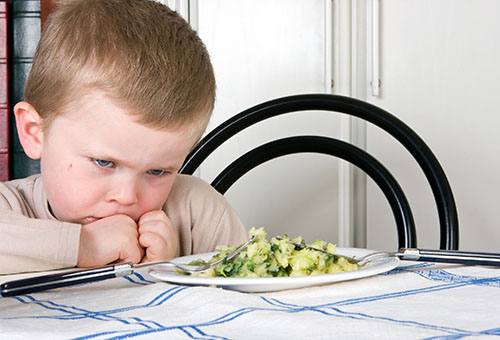
Symptoms and main manifestations
Children's crisis can take place with different intensity. In some children, the manifestations are almost invisible, while others bring a lot of unpleasant minutes to parents. It depends on the temperament of the peanut itself and on family relationships.
But the main symptoms are the same. Psychology identifies the following features.
- Negativism. The child refuses to comply with any requests and constantly tries to do the opposite. This can manifest itself not only in actions, but also in judgments, for example, a child can say that hot is cold, red is black, and so on. Thus, the child expresses his opinion, which should not be so zealously challenged in order to avoid conflict.
- Stubbornness. A 3-year-old kid, refusing to do anything, continues to behave in the same way, no matter what. Even if the conditions have changed to favorable ones, he would be happy to agree, but he cannot do it.
- Obstinacy. Manifestations of discontent not in relation to a specific person, as in the case of negativism, but to the whole familiar way of life. In children, the daily routine causes rejection, family traditions, brushing your teeth, even your favorite toys.
- Willfulness. A child at 3 years old feels the desire to do everything himself. Even what he has not yet succeeded in or can be dangerous.
- Protest riot. Manifestations look like constant quarrels with the family, objections to parents. The kid begins to behave defiantly, as if protesting against something.
- Depreciation. Everything that used to matter to a child may lose its value. Favorite toys and activities, home life cease to matter. In addition, in children of this age, swearing often appears in use.
- Despotism and jealousy. If the child is alone in the family, then he seeks to gain power over the surrounding adults. When there are other children, they cause jealousy, because you have to share this power with them.
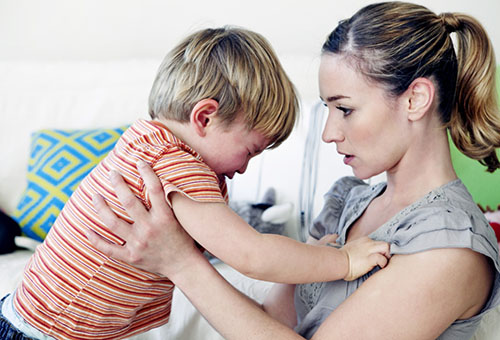
Parents can have a hard time age crisis, manifestations of which they noticed. But it is worth remembering that for children this period is even more difficult. Therefore, they need support and help. Psychology not only explains the reasons for what is happening at the age of three, but also gives recommendations on how to overcome it.
In this situation, do not require the child to be an adult
Psychology reminds us how important it is for adults to remain calm. This is not so easy, because children's anger, whims, tantrums and other manifestations easily unbalance. Surely moments of disobedience were observed in children up to the age of three years, only less often and they passed on a smaller scale. But you need to behave, as before in such situations, patiently seek an approach to the baby. You are an adult in this situation, not a child, only you have the life experience and knowledge to go through this difficult period with the least loss.
The child explores the world in this way, tests the boundaries of the norm, learns to interact with you, tries to work with new emotions for himself. He does all this not from evil, this is how he develops and forms.
What to do if a tantrum occurs?
The main thing is not to scold the child. If you put yourself in his place and try to look at the situation through his eyes, then it may turn out that your scolding or punishment does not look adequate. In the worst case scenario, a child may think that they don’t love him, they don’t accept him, that something is wrong with him, that he is somehow wrong, a guilt complex may begin to form and the first problems in the formation of the baby’s self-esteem will be laid.
Someone will calm down faster if you very delicately ignore what is happening, as if everything that happens is normal and natural. The child will release their emotions and calm down. It is not worth leaving and leaving the child alone at such moments, he must feel that his parents are nearby.
It will help another little one to stop sobs if you hug him and feel sorry for him. But this method should not be abused, since the baby can get used to the fact that he receives affection for whims. And will continue to take advantage of this opportunity.
Let's choose from several options
A good option is to stop the beginning tantrum by turning your attention to something else, but at this age such a focus may no longer pass. The best option will fulfill the request of the child, giving him a choice of several options for the development of events that initially suit you. Let your child make choices and be independent.
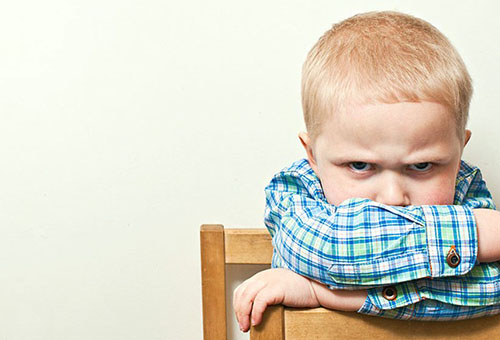
How to deal with stubbornness and protests?
Surely parents want to raise a self-confident person with normal self-esteem. But it is unlikely that this will work out if you constantly forbid everything to the child, do everything for him, limit him, even with the best of intentions. At the age of three, children begin to show independence. The kid has the right to make his own mistakes, as well as personal achievements. In no case should he be ridiculed!
Borders, of course, should be, but only reasonable: do not play on the road, do not miss sleep, do not walk in the winter without a hat. In other things, it is worth giving freedom to a child who, although still small, is no longer a baby.
- The house should be made as safe as possible so that the baby is less likely to have to be restrained. Although you should think about it long before three years.
- Allow the little one to do everything on his own with which he can handle. Even if he does it slowly and frankly badly.
- Help the baby to do what he has not yet succeeded. Together with him, not instead of him.
A child at this age can still switch from one to the other with relative ease. This is worth using if the baby certainly wants to do something not for his age. For example, a kid wants to work with a drill. To avoid tantrums, you can ask him to serve dad other items or offer a toy instrument. That is, get involved in the game. At the same time, it is desirable to talk about what is a little more - and the baby will definitely be able to do it himself. If this approach does not work, then you can offer a choice of several options in a slightly different context: “What are you going to do? Serve nails, play with a box, or lay out pucks?
If the child does not want to fulfill the request, it is worth trying to formulate it in other words, offer a compromise, several options to choose from, or leave the baby alone for a while.
As already mentioned, the main recommendation of experts is to give the child freedom of choice. It is important for a child to be able to make decisions. For example, do not say “We are going for a walk”, but ask “Where are we going for a walk, to the park or to the playground?”. If on the street the baby wants to go a different way and time allows you to change the route, then you should do it. Then the crumbs will have confidence in their abilities, because he managed to defend his opinion.
Sometimes parents resort to the “do the opposite” technique. That is, they ask the child not to go for a walk or not to go to bed. In protest, he rushes to do the opposite. But this method should not be abused. Yet this is a deception of the little man. In addition, the crisis leads to personal development, and such adult behavior will not bring any benefit.
It happens that the crisis of three years passes almost imperceptibly. You should not worry and look for symptoms, but if the crisis manifests itself in all its glory, then remember that you have a child in front of you, which is being formed, changed, and matures. Be careful not to injure children or later regret that you yelled at or punished a child.
A bright crisis of childhood occurs when the child reaches three years. Parents are taken by surprise by the fact that yesterday the baby was gentle and obedient, but so quickly turned into a little whim, with whom it is simply impossible to agree. The little tyrant begins to become stubborn and completely does not perceive those things that were not problematic yesterday. “Crisis of three years” - this is how psychologists call this behavior of a baby. To understand what is happening with a baby at the age of three, you must first understand the symptoms.
Three year old crisis symptoms
The crisis of the age of three can last several months or more, proceed in different children with different intensity. During this period, the crumbs change relationships with others, and new social skills appear. At the age of three, the human psyche begins to form, therefore, when communicating with the offspring, it is necessary to take into account its age characteristics.
Psychologists draw parents' attention to seven symptoms of a crisis:
- Negativism.
- Stubbornness.
- Despotism.
- Depreciation.
- Obstinacy.
- Riot.
- Independence.
Let us analyze the symptoms of the crisis separately, trying to systematize their manifestations and give an accurate picture of what is happening.
- If we talk about children's negativism, then you must first learn to distinguish negative reactions from simple disobedience.
If the baby simply does not do what he does not want to do, then this cannot be called negativism. Negativism manifests itself in the unwillingness to do something just because it was suggested by adults. It is a response to the offer itself, not to the action. Negativism manifests itself in relation to one person, and a three-year-old baby will treat other adults with obedience.
- The second symptom of the three-year crisis is stubbornness, which should also be learned to distinguish from perseverance.
If a child persistently seeks the fulfillment of his desire, then this cannot be called stubbornness. The motive for the real stubbornness of the crumbs can be perseverance, and the object can be anything from food to action. The child is ready to perform the action, not because he really wants to, but because he demanded it. For example, a boy is called to the table, and a small member of the family refuses, although he really wants to eat. Adults argue and convince, but the stubborn one still does not fit, since he had already refused earlier.
- Despotism is the desire of a child to subjugate adults to his will.
This symptom manifests itself in a family where parents have an only small child, and all adults spoil him, everyone allows him. For example, a little daughter demands that her mother stay in the room and sit next to her. Or a three-year-old son will eat only what he wants, but refuses to eat healthy foods. By this, children try to return the state of infancy, when their parents provided them with everything on demand. In a family with several children, despotism is expressed as jealousy.
- Devaluation of events and actions, the importance of things is manifested in antics, name-calling, breaking toys: that is, the baby shows that he no longer needs what was dear to him before.
A three-year-old baby is in constant conflict with others: this behavior is similar to a protest. The baby's lexicon is expanding every day, replenishing with bad words and terms that mean denial. As a rule, they refer to things that do not bring trouble at all.

- Obstinacy is also one of the unpleasant symptoms of a crisis in a small three-year-old offspring.
Stubbornness is impersonal. If negativism is directed specifically against this or that adult, then obstinacy is directed at all actions that are offered to the baby.
- Rebellion is manifested in the desire to attract more attention.
A three-year-old baby tries to show his parents that his desires have the same weight as their own, so he goes into conflict for any reason. Parents sometimes think that the baby is just mocking them, constantly commanding and demanding that their own, even the most ridiculous, instructions be carried out.
- The crisis of three years vividly expresses the desire of the little offspring for independence.
The child shows curiosity, learns new things, tries to understand incomprehensible things, which subsequently favorably affects the formation of his personality. However, the negative aspects of the symptom are that the baby wants to take on adult affairs, which at the age of three do not work out at all, and the result is hysteria.

How it manifests itself and how long the crisis lasts 3 years
Why does a crisis occur at the age of three? The development of a small person continues uninterruptedly, and from infancy, the baby smoothly passes into adolescence. He already knows how to do many things on his own, but is not yet able to completely do without his parents. It is not easy to get used to this, therefore, at the age of three, a crisis is inevitable. The kid simply does not know how else to overcome those new sensations that life presents. But how to painlessly reach a new level of development, the offspring should be shown by the parents.
The crisis period of three years is marked by active inner work, when significant changes are outlined in the mental development of the baby. The main neoplasm in this early period is the feeling of a sense of one's own "I". A little three-year-old man forms an attitude towards himself, and if a baby a year ago, seeing his own reflection, said: “This is Sasha”, then when he reaches three years old, approaching the mirror, he will definitely say: “This is me.”

A three-year-old baby is just beginning to realize that he has already grown out of infancy and begins to influence the circumstances of his life and the people who surround him. The youngest member of the family already feels on a par with his parents, and therefore requires the same attitude as an adult. Tantrums happened even before the baby reached the three-year crisis, they were only signs of physiological problems:
- overwork;
- diseases;
- malnutrition or lack of sleep.
During the crisis of three years, hysteria is manipulation. The kid on a subconscious level tries to get what he wants from his parents, especially children love the audience. No wonder adults have noticed that on the street, in a supermarket or on a playground, a child falls into hysterics much more often than at home. How wisely the parents behave, the teenage crisis will be easier for the little offspring.

It is impossible to guess how long the crisis will last for the baby. For some children, the crisis age goes unnoticed, while others linger in it for several years. A growing man will often face age thresholds, but the crisis of three years is considered an important milestone on the path of personal growth. Wise parents simply wait out the crisis, because first of all, the burden falls on the psyche of their child.
What to do and how to survive it
Adults should prepare their offspring for the crisis of three years even before the baby celebrates its third birthday.
- The reaction to the whims of the younger family member should be calm and balanced.
You need to understand that a child during a crisis tests the nerves of his parents for strength. The baby will constantly put pressure on weak spots until he finds a slack.
- Moms and dads need to remember that the crisis of three years is not a manifestation of negative heredity or harmfulness of character, this is the norm ..
The formation of the personality of the future adult should not be clogged with prohibitions. It is also undesirable to go to the other extreme, because permissiveness will develop character traits in a little tyrant, with which over the years it will not be easy to integrate into society.
![]()
- Do not do for the baby those things that he wants to do himself.
Let the child try everything that is not life-threatening with his own hands, and if a couple of plates break in the process of learning the world, it does not matter. Parental wisdom also lies in offering a choice to a small person already at the age of three. For example, offer the baby to go outside in a black or blue jacket, knowing that the child may want to walk without it at all.

- Adults need to stop forcing three-year-old offspring to do something: it is advisable to just ask - and the baby will immediately appreciate it.
A three-year-old baby still has a slow rhythm of life and a type of psyche, so he needs to be given more time to react, and to bring any process into action. Wise tricks of parents will help prevent tantrums and keep the nerves of all family members: both small and large. It is better to seek advice and recommendations from a child psychologist at the age of three than to make a lot of mistakes in the educational process. Parents need to admit: their baby is becoming an adult, so his independence should be respected.
How to deal with whims
Psychologists believe: there is no greater power than the attention of parents. With the help of attention, all the problems that arise in a crumb of three years during a crisis are solved. The behavior of children is directed at those people who are constantly nearby, so the whims are explained only by attracting attention to themselves. It’s not that three-year-old children meaningfully want to drive their caregivers crazy, it’s just that, in their opinion, if they don’t attract attention with bad behavior, then relatives can completely forget about the existence of a little person.

Before you react violently to rebelliousness, you should find out the real reason for the bad behavior of a small child. Three-year-old children already have a subconscious need to avoid the humiliation that is felt during parental orders and moralizing. Perhaps this is the cause of the crisis? To punish after each tantrum is to develop cowardice and spinelessness in a child. Do you have a desire to raise such a person? It is much wiser to silently wait out the storm, and then try to get through to the offspring with the help of simple logic.
Three-year-olds already depend on how any information is presented to them and how logical the arguments look. To prevent tantrums during a crisis, it is important to be able to negotiate even at the initial stage of any action. For example, even before going to the store, you should agree with the crumbs about the impossibility of buying a toy. Do not demand and criticize, but discuss and explain why this action will not take place. You also need to be sure to ask how to replace the desired toy and offer your own entertainment options in return.

So, to make it easier to cope with the whims you need:
- stay calm;
- remember that hysteria can be the cause of inattention;
- invite the child to choose a strategy for solving the problem;
- restrain and not show irritation;
- find out the cause of whims;
- do not appeal to the mind of the baby in the midst of a scandal.
How to respond to parents
Parents are especially worried about affective outbursts that occur in three-year-old children with great intensity. During a crisis, you should not pay too much attention to them: the right decision is to ignore the tantrum altogether, and then, seeing that the methods do not work, the little manipulator will look for more effective tactics to involve adults in his game. But sometimes ignoring doesn't work either.
There are little personalities who are able to be in a state of passion for a long period of time, but the mother's heart is not able to endure this for a long time. An effective way to bring your child out of hysteria will be pity: hug, put on your knees, pat on the head - this always works flawlessly. But the mother should know that in this way her winner will influence in the future, demanding additional portions of attention.

The crisis age of three years is the formation of adequate self-esteem in a small person. It is laid by trial and error, and adults should give the opportunity to make these mistakes in order to avoid many problems in the future. There is only one advice to parents: give the maximum possible freedom to the offspring. Starting from the age of three, an independent little person must go his own way. Educators who limit the independence of children disrupt their development, forming a heightened sense of insecurity.

But this does not mean that it is necessary to condone the baby in everything during the crisis. The golden mean in education is the definition of boundaries that are vetoed. For example:
- never play on the road,
- you can not walk in cold weather without a hat,
- you can’t skip the sleepy hour during the day, etc.
Parents are simply obliged to give their three-year-old little one the right to choose at least two options. Many valuable tips are described in the author's method of world famous psychologists D.B. Elkonin and V.V. Davydov.

Child psychology
The psychology of three-year-old children is fundamentally different from that of an infant. Adults do not know how to respond to all the changes that occur in the behavior of the child. Such unpreparedness leads to disastrous results: conflicts in the family, in kindergarten, and later in the adult life of a growing person.

In addition to the development of independence, three-year-old children begin to be afraid of various things that they did not pay any attention to yesterday:
- height;
- large space;
- darkness;
- new environment;
- new people.
Inexplicable fear is expressed in the refusal to sleep alone, screaming in a dream or profuse tears in the middle of the night. It is important for moms and dads not to ignore this period and to convince the offspring that he is under reliable protection. Such an approach will help build a bridge of trust in the little man, which will have a positive effect on subsequent attempts by adults in a crisis to negotiate with him.

A three-year-old child reacts sharply to the psychological situation in the family - scandals, swearing, raised voices. The reaction to such an atmosphere can be unpredictable, so it is very important for parents to maintain harmony in relations with each other when a small family member enters a crisis age. If three-year-old children see quarrels in the family, this will lead to a pronounced sense of their own inferiority, and subsequently to the use of the same style of behavior with the opposite sex already in adulthood.
Thank you. Your message has been sent
Did you find an error in the text?
Select it, click Ctrl+Enter and we'll fix it!
